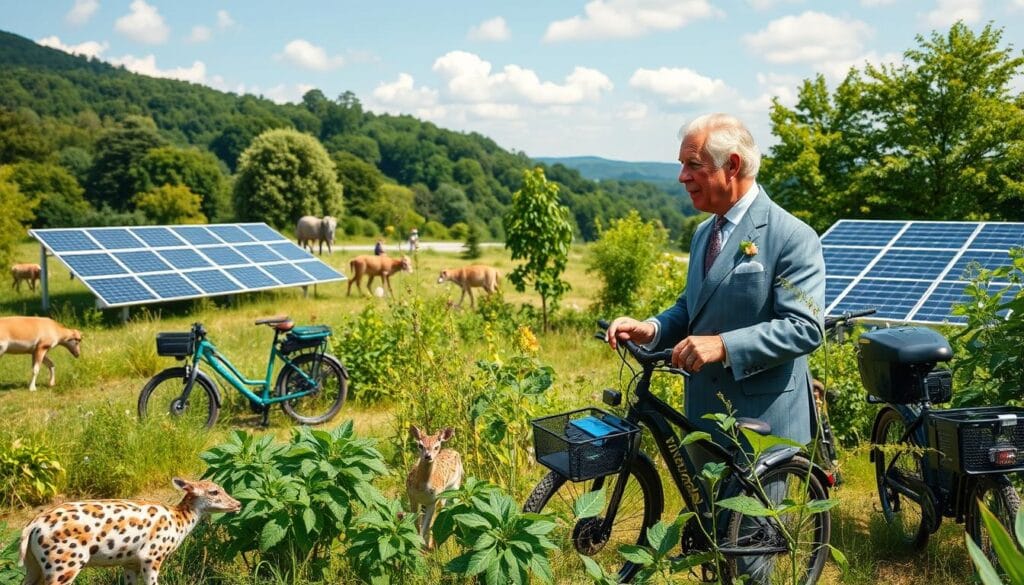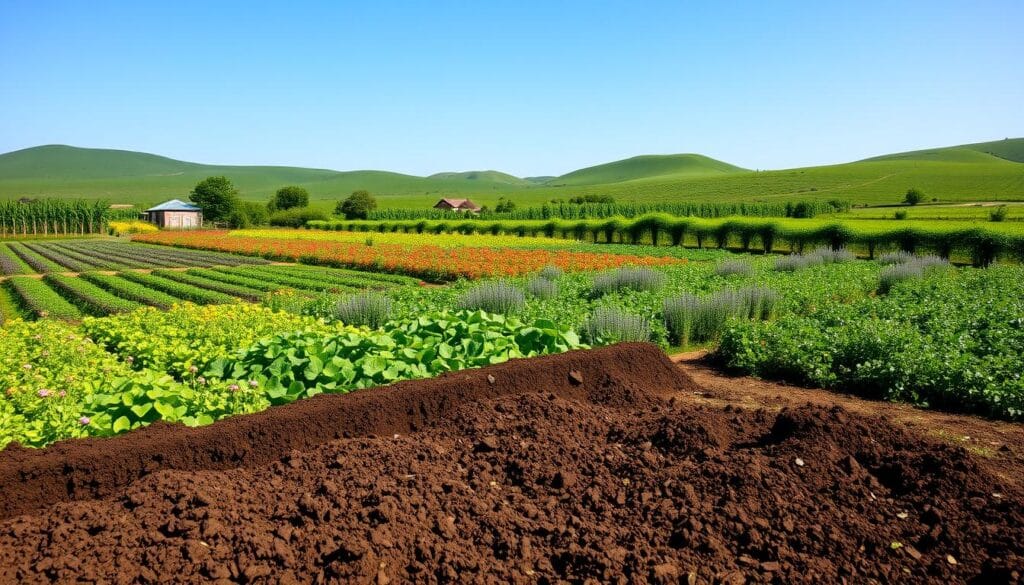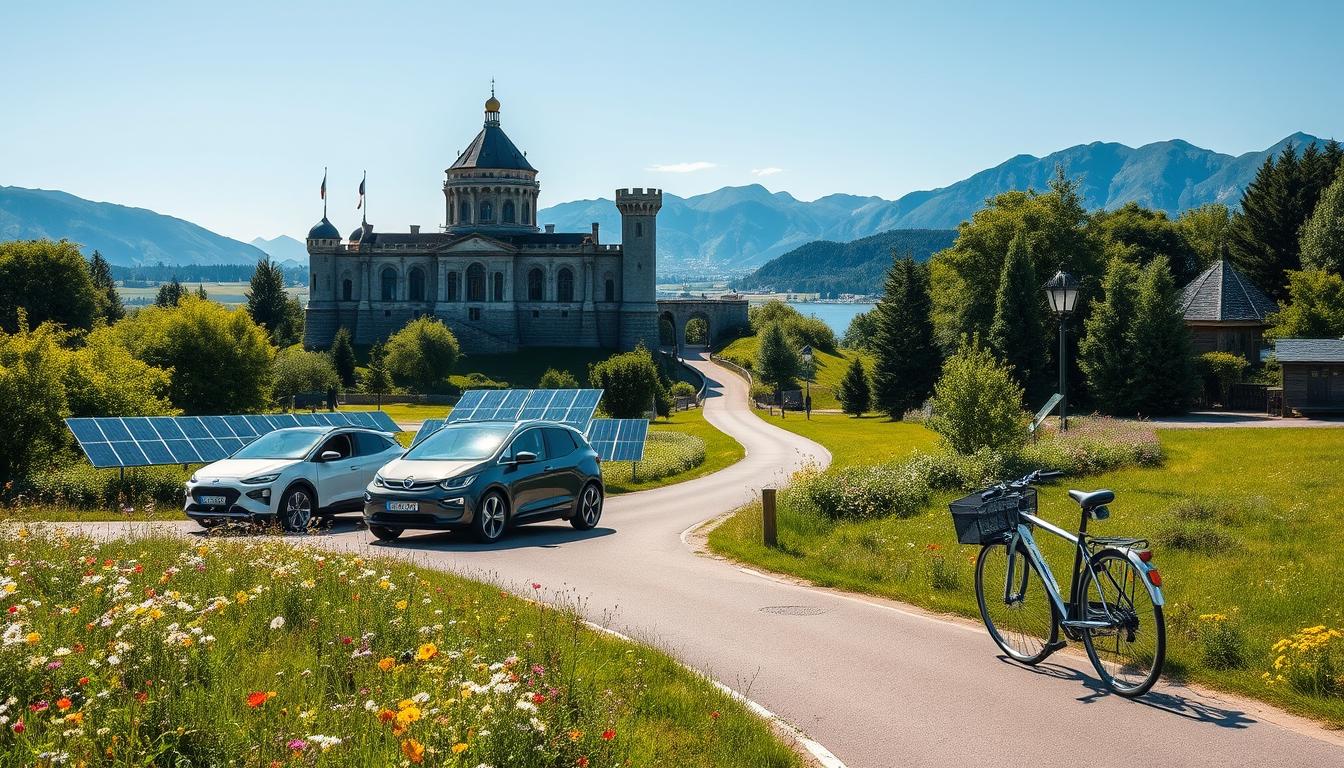King Charles Sustainable Travel Initiatives: Royal Eco
The biggest danger of our generation is thinking that someone else will solve the problem of our future. ’ by Robert Swan, an Antarctic explorer and environmentalist. This quote shows that King Charles III has always been concerned with sustainability, as he said before the fire at the Palace. He has advocated for more than 50 years, even before environmentalism became trendy.
Tracing the life of King Charles’s sustainable travel initiatives, one can find that he studied as the Prince of Wales and pioneered ecological practices. He fought for these issues way before they became fashionable. What about environmental issues? He re-emphasized his commitment after becoming King in September of the previous year. Such natural activities as composting that he practices are seen to be more efficient than the others.
There is still controversy regarding the implementation of compostable materials in the food waste streams, most notably the paper. But the endorsement of the King tips the scale in favor of compostables. As a leader, his passion for sustainable management is still an influential player in these discourses.
Table of Contents
Key Takeaways
- King Charles III has been a leading environmental advocate for over 50 years, long before the rise of the Green Party in the UK.
- Upon becoming King, Charles III reiterated his dedication to environmental causes, including championing composting and sustainable practices.
- King Charles’ approach to environmental issues is seen as more effective than the methods advocated by the Secretary of State for the Environment.
- The King’s advocacy for sustainable practices, such as the use of compostable materials in food waste streams, adds significant weight to these debates.
- King Charles’ sustainable initiatives cover a wide range of areas, from sustainable travel to fashion and textile initiatives.
King Charles Sustainable Travel Initiatives
Before becoming the British monarch, King Charles Sustainable Travel Initiatives showed a strong dedication to saving the environment. In the 1980s, when green living was just starting to become popular, Prince Charles was already leading the way. Despite criticism from The Guardian, he kept pushing forward.
One key example of his early efforts was setting up a bottle bank at Buckingham Palace. This move not only helped the royal family recycle but also sent a strong message to everyone. It showed the importance of reducing waste and living sustainably.
Championing Environmental Preservation
Prince Charles also spoke out and wrote to government officials about protecting the environment. He pushed for the use of natural resources in a sustainable way. His dedication, even when faced with doubt, helped pave the way for his later work, like the Sustainable Markets Initiative in 2019.
“Our world is currently at a crossroads, and we must act decisively to secure the future of our planet and its precious resources.”
These early steps by King Charles (then Prince Charles) have set the stage for his ongoing role in sustainability. His efforts to tackle today’s environmental challenges are a testament to his enduring commitment.

Sustainable Farming and Composting Practices
King Charles III is deeply committed to the environment. In 2013, he started the Duchy Future Farming program with the Soil Association. This program helps UK farmers use organic farming methods.
He also supports using duchy organic and compostable packaging. This is seen in his efforts to compost on the royal estate. There, they mix compostable packaging and food waste to make organic compost for the gardens.
Composting at Sandringham and Highgrove Estates
At Sandringham, the King shows his dedication to sustainability. They compost packaging and food waste to make compost for the gardens. At Highgrove, the head gardener makes compost from papers, food scraps, and garden waste. This shows the King’s commitment to sustainable practices.

“By championing organic farming and embracing compostable materials, King Charles III sets a powerful example of how to build a more sustainable future.”
Embracing Nature’s Recycling Capabilities
King Charles Sustainable Travel Initiatives III is a big supporter of saving the environment. He believes nature can recycle and reuse things better than we can. On his Sandringham estate, he mixes compostable packaging and food waste to make organic compost for the gardens. At Highgrove, the head gardener turns old papers, food scraps, and garden waste into compost. This shows the King’s strong commitment to the sustainability of natural cycles.
The royal composting at the King’s places shows he really gets King Charles Sustainable Travel Initiatives natural recycling. He believes in nature’s circular ways. By following his lead, we can all help the environment more.
“Nature is the greatest recycler of all, and we must learn from her example to create a more sustainable future.”
King Charles III
The King doesn’t just focus on his estates. He also pushes for everyone to use King Charles Sustainable Travel Initiatives and royal composting. He wants us to see the natural world in a new light. He believes in its power to heal and start over.
Championing Compostable Materials
King Charles sustainable travel initiatives have always supported compostable materials. He sees them as keys to living in harmony with nature. At the COP 28 summit, he talked about how all life is connected and how compostables keep our planet balanced.
By using compostables, we give nutrients back to the soil. This supports the natural cycle and helps manage waste better.
Advocating for Compostables in Food Waste Streams
King Charles pushes for compostable materials in food waste. He knows we need compostable films for food waste. This lets people recycle these materials with their food, making waste disposal more eco-friendly.
Promoting Household Access to Compostable Alternatives
King Charles Sustainable Travel Initiatives compostable materials effort is a big part of the Royal Family’s green push. By promoting household access to compostable alternatives, they want people to choose green options every day. This lets families help the natural cycle, keeping organic matter out of landfills and supporting soil and ecosystems.
“We must be in harmony with nature if we are to have a planet that continues to provide the health and opportunity for all living things to flourish.”
– King Charles
| Compostable Material | Benefits |
|---|---|
| Bioplastic Bags | Made from renewable, plant-based materials Break down into organic matter in compost facilities Reduce reliance on fossil-fuel-based plastics |
| Compostable Food Containers | Allow for disposal of food-contaminated items Support circular economy by returning nutrients to the soil Decrease plastic waste in landfills and oceans |
| Compostable Utensils | Made from plant-based materials like bamboo or corn Eliminate the need for single-use plastic cutlery Contribute to a more sustainable waste stream |
King Charles’s sustainable travel initiatives
King Charles Sustainable Travel Initiatives III has made sustainability a top priority. His efforts go beyond the palace. The royal household has taken steps to be more eco-friendly.
They’ve switched the royal car fleet to electric vehicles (EVs). They’ve also started using renewable energy at Buckingham Palace. These changes aim to reduce the royal household’s environmental impact.
King Charles has also made a big change. He’s converted some Bentleys to run on biofuel. This move cuts down on carbon emissions from royal cars. He plans to make the whole fleet electric soon.
The royal homes are now powered by renewable energy. Windsor Castle has solar panels. Buckingham Palace has been made more energy-efficient. These changes reflect King Charles’ values and set a good example.
The royal family is also focusing on sustainable aviation fuel. This is important because of their frequent air travel. Using sustainable fuel helps reduce their carbon footprint.
King Charles III is leading the way in sustainable royal travel. His efforts show his commitment to the environment. His actions inspire others to care for our planet.
Sustainable Fashion and Textile Initiatives
King Charles has always supported sustainable fashion and textiles. In 2010, he started the Campaign for Wool. This global effort highlights wool’s eco-friendly, biodegradable, and renewable qualities in fashion.
His love for royal circular fashion shines through in this campaign. He believes in moving from a linear to a circular system. This means making clothes sustainably, using them for a long time, and choosing natural materials like wool.
King Charles’ efforts go beyond the Campaign for Wool. He also pushes for using compostable and biodegradable materials in fashion. He wants these materials to become common in clothing and textiles.
“A major part of the change has to be moving from a linear system to a circular one, where textiles and clothing are produced sustainably, enjoy long use, and are made using natural materials, specifically wool, which will biodegrade naturally and quickly at the end of their useful life.”
The royal circular fashion efforts by King Charles aim to lessen the fashion industry’s environmental harm. This industry is a big contributor to global waste and pollution. By choosing natural, renewable, and biodegradable materials, King Charles is paving the way for a greener fashion future.
Environmental Commitments at Royal Residences
King Charles is a big supporter of saving the environment. He has made the royal homes more green. This includes using solar panels and electric cars, showing his dedication to clean energy.
Solar Panels, Biomass Boilers, and Energy Efficiency
Windsor Castle will soon get solar panels. This move will help cut down on energy from non-renewable sources. Also, Buckingham Palace’s gas lanterns will get new electric fittings to save more energy.
Transitioning the Royal Fleet to EVs
The royal cars will soon run on cleaner fuel. King Charles wants to change two Bentleys to biofuel in a year. He hopes to make all royal cars electric soon. This is part of his effort to use renewable energy, starting with his own electric Jaguar I-PACE five years ago.
| Royal Residence Sustainability Initiatives | Details |
|---|---|
| Solar Panels | Windsor Castle will soon be fitted with solar panels to reduce reliance on non-renewable energy sources. |
| Buckingham Palace Gas Lanterns | The iconic gas lanterns at Buckingham Palace will be retrofitted with specially designed electrical fittings to enhance energy efficiency. |
| Royal Fleet Electrification | King Charles plans to convert his two state Bentleys to run on biofuel and eventually switch the entire fleet of official royal cars to EVs. |
King Charles Sustainable Travel Initiatives is really committed to saving the planet. His efforts to make royal homes and cars more eco-friendly are clear. His actions inspire others to work towards a greener future.
Conclusion
In today’s world, King Charles Sustainable Travel Initiatives III stands out as a leader in sustainability. His lifelong work on environmental issues shows the Royal Family’s commitment to green initiatives. He has made big changes, like starting a bottle bank at Buckingham Palace and using electric vehicles for the Royal Fleet.
The Royal Family is also focused on sustainable farming, energy, and nature. They lead by example, showing us how to care for our planet. Their efforts in sustainable travel make them pioneers in environmental stewardship.
King Charles III has become a true champion of sustainability. His dedication to green practices, both at home and globally, is inspiring. His legacy will guide us towards a greener, more resilient future.
FAQ
What are some of King Charles III’s early environmental advocacy efforts?
Over fifty years ago, King Charles III started fighting against plastic pollution. He was a leader in eco-friendly practices long before it was popular. His efforts began before the Green Party became well-known in the UK.
How did King Charles demonstrate his commitment to environmental causes as Prince of Wales?
As Prince of Wales, King Charles showed his dedication to the environment. He set up a bottle bank at Buckingham Palace. He also spoke out and wrote to ministers about protecting the environment.
What sustainable farming and composting practices have King Charles implemented?
In 2013, King Charles launched the Duchy Future Farming program with the Soil Association. It helps UK farmers use organic methods. He also promoted compostable packaging and composted at his estates.
How does King Charles view the role of compostable materials in achieving sustainability?
King Charles Sustainable Travel Initiatives. sees compostable materials as key to sustainability. He believes they help nature recycle and keep the environment balanced. He wants to make compostable options available to everyone.
What sustainable travel initiatives have King Charles implemented?
King Charles Sustainable Travel Initiatives is making the royal car fleet electric. He’s also converting Bentleys to biofuel. The Royal Household is using sustainable aviation fuel and solar panels at Windsor Castle.
How has King Charles championed sustainable fashion and textile initiatives?
King Charles Sustainable Travel Initiatives. supports sustainable fashion, especially through The Campaign For Wool since 2010. He aims to create a circular system for textiles and clothing. This means using natural materials that break down easily.
What other environmental commitments have King Charles made at the royal residences?
Windsor Castle will get solar panels soon. Buckingham Palace’s gas lanterns will get new electrical fittings. King Charles also plans to make his Bentleys run on biofuel and switch to electric cars.
There are no reviews yet. Be the first one to write one.







